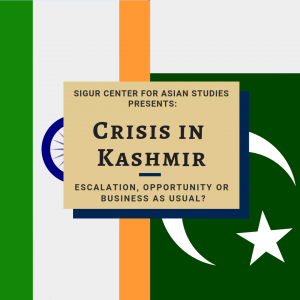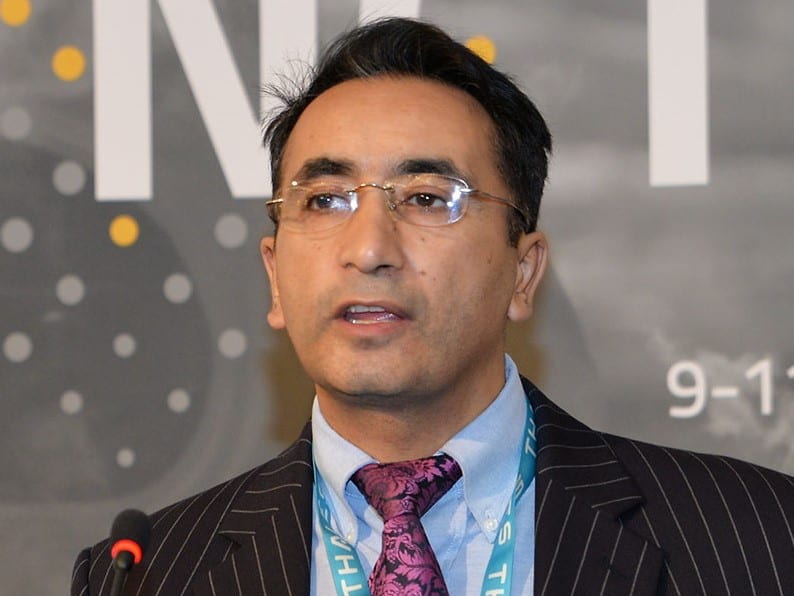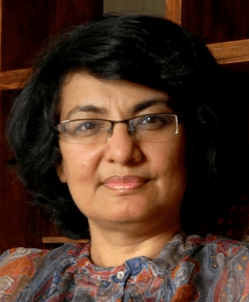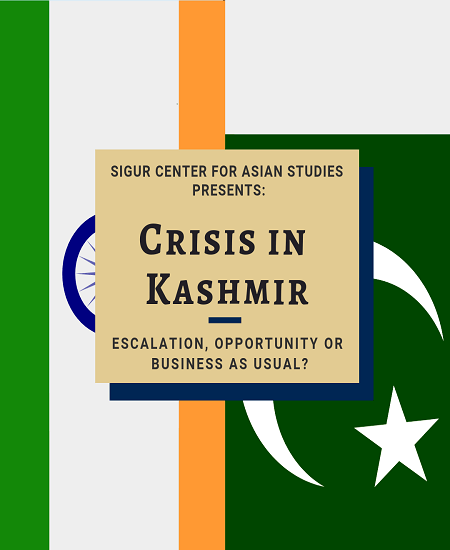
Thursday, March 21, 2019
12:30 PM – 1:45 PM
Room 503, Chung-Wen Shih Conference Room
The Elliott School of International Affairs
1957 E Street, NW, Washington, District Of Columbia 20052

A month into the military confrontation between India and Pakistan in Kashmir set off by a suicide bombing killing 40 Indian Central Reserve Police Force members by Pakistan-based militant group Jaish-e-Mohammed, the crisis seems to have receded—or has it?
What are the ongoing threats that might re-ignite the crisis? Are there opportunities to further diffuse the situation? What are the main forces at play in Kashmir, the region and internationally that will influence these outcomes?
The Rising Powers Initiative and the Sigur Center for Asian Studies invites you to a discussion on the crisis and its aftermath.
About the Speakers:

Deepa Ollapally is directing a major research project on power and identity and the worldviews of rising and aspiring powers in Asia and Eurasia. Her research focuses on domestic foreign policy debates in India and its implications for regional security and global leadership of the U.S.

Dr. Aqab Malik is a Fulbright visiting scholar at the Sigur Center at the Elliott School of International Affairs at George Washington University. He has previously been a visiting scholar at the School of Advanced International Studies at Johns Hopkins University and is currently working on a book on the geostrategic consequences of the belt and road initiative on the global transfer of power.

Navnita Behera is a reader in the department of political science at Delhi University, and the author of “State, Identity and Violence: Jammu, Kashmir, and Ladakh” (Manohar Publishers, 2000). She has been a visiting scholar at the Brookings Institution and has published extensively on South Asia.

Emmanuel Teitelbaum is assistant professor of political science and international affairs at George Washington University. His research examines the political roots of class conflict and the foundations of class compromise. His articles have appeared in leading journals, including World Politics, Comparative Political Studies, Political Research Quarterly, PS: Political Science & Politics, the Journal of Development Studies and Critical Asian Studies. His forthcoming book, Managing Dissent: Government Responses to Industrial Conflict in Post-Reform South Asia, explores the dynamics of state-labor relations and industrial conflict following the implementation of neoliberal economic reforms.


